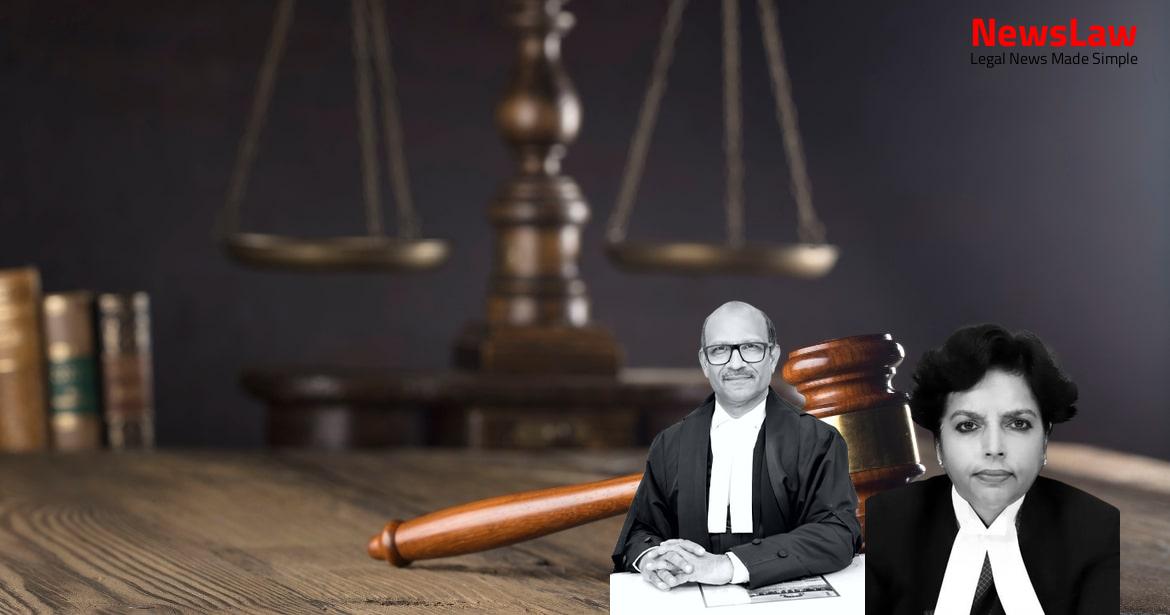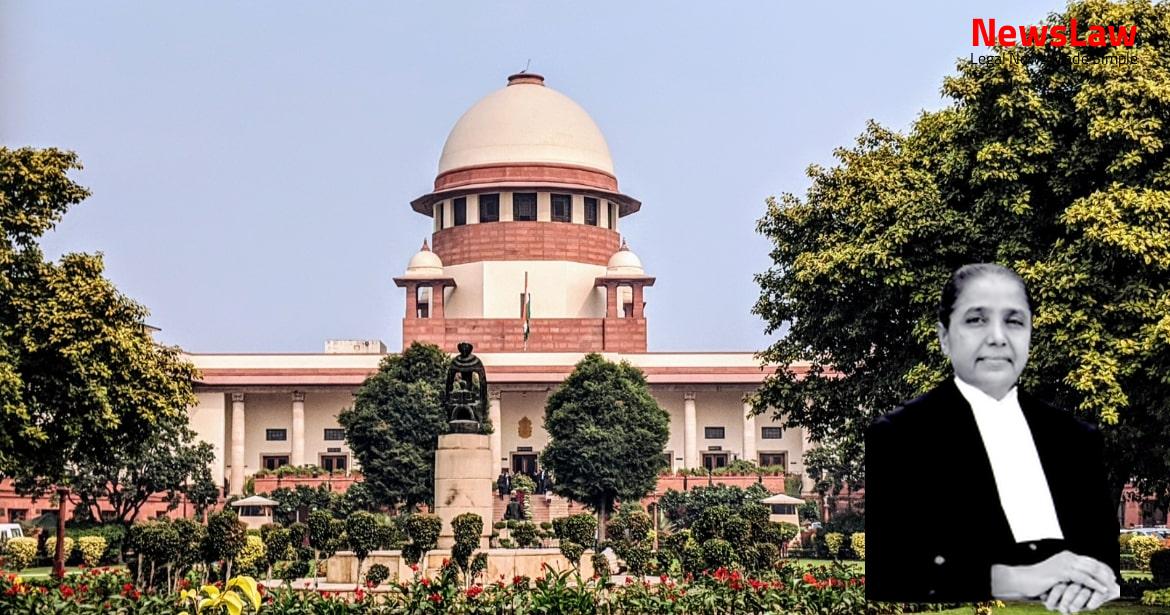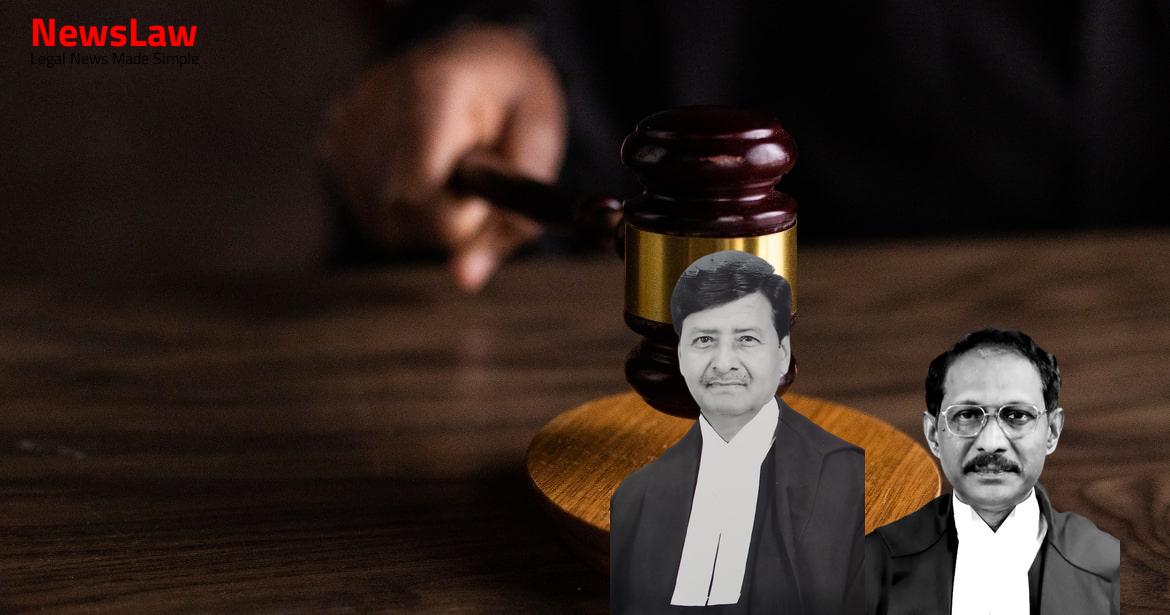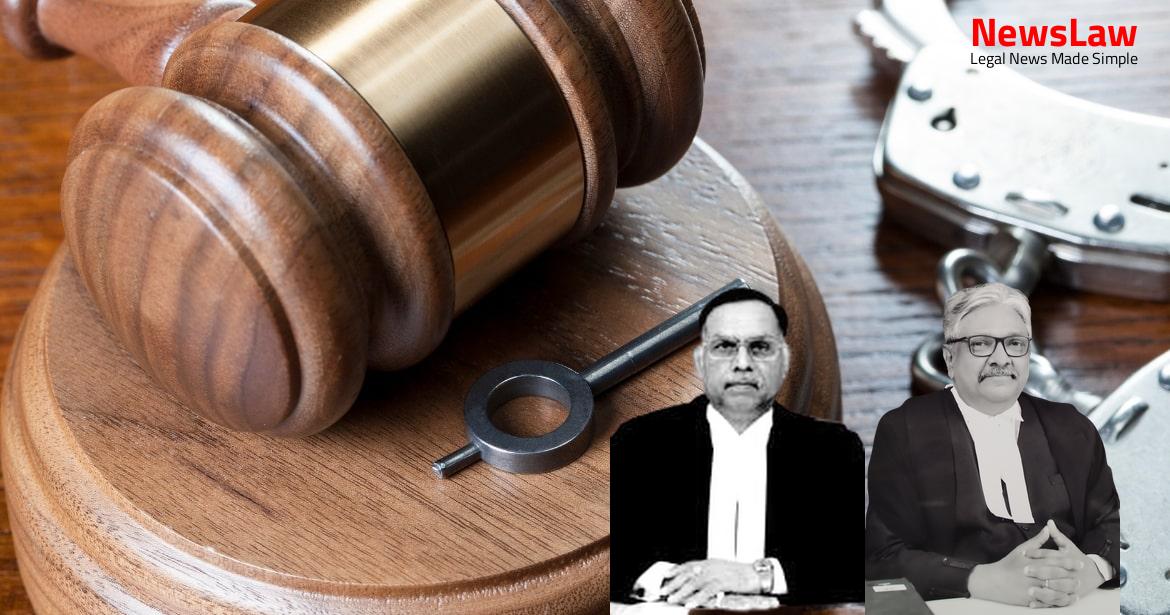In a landmark decision by the Supreme Court of India, the accused in the fabricated kidnapping case have been acquitted. Despite the prosecution’s attempts to incriminate them, the court found the entire prosecution story to be a fabrication with ulterior motives. This acquittal marks a crucial moment in legal proceedings, highlighting the importance of upholding justice and truth in every case.
Facts
- The Division Bench of the Punjab and Haryana High Court dismissed the appeals filed by the appellants in a common judgment dated 19 January, 2009.
- The appellants were convicted for offenses under Sections 364A, 392 and 120B of the Indian Penal Code, 1860 by the trial Court and were sentenced accordingly.
- The appellants challenged the judgment of the trial Court in the Punjab and Haryana High Court through separate appeals.
- Accused Gaurav Maini, Gaurav Bhalla, Munish Bhalla, and Sanjay @ Sanju were in custody for varying durations ranging from approximately 7 to 10 years.
- Accusations of illegal detention, confinement, and torture in custody were raised by the appellants, denying the prosecution’s allegations.
- The learned trial Court convicted and sentenced the appellants after analyzing the evidence and hearing arguments from both sides.
- Accused Gaurav Bhalla claimed the prosecution’s case is false and fabricated.
- The alleged kidnapping incident took place on April 2, 2003.
- Accused Gaurav Bhalla, Munish Bhalla, and Sanjay made disclosure statements.
- Recovered items included currency, wristwatches, mobile phones, and cash.
- Involvement in a similar incident in Kothi No 81-A was mentioned.
- The accused threatened and demanded ransom for the release of Sachin Garg.
- Pankaj Bansal, Gobind, and Amit Verma were discharged from the case.
- Gaurav Bhalla was involved in a love affair with Shivani since 3 to 4 years prior to the incident.
- Mobile phone details and SIM card purchases were investigated.
- Statements of kidnapped boy Sachin Garg and his father Mahesh Garg were recorded.
- The family arranged ransom money fearing for Sachin Garg’s life.
- Gaurav Bhalla was identified by Sachin Garg during the incident.
- An FIR was registered for offenses under Sections 387 and 507 IPC.
- The accused were connected through specific mobile numbers and sets.
- A disclosure statement under Section 27 of the Evidence Act was mentioned.
- Recovery of money and articles at the accused’s instance was disputed by the defense.
- The family did not report the kidnapping incident to the police despite Sachin Garg’s release.
- Various amounts of cash were recovered from different locations.
- The truthfulness of the prosecution case was questioned by the defense.
Also Read: The Case of Custodial Death: A Landmark Judgment by the Supreme Court of India
Arguments
- Learned counsel for the State vehemently opposed the submissions by learned senior counsel for the accused appellants.
- The defence witnesses provided affirmative evidence to prove the alibi raised by the accused.
- Family members were aware of the relationship between Gaurav Bhalla(A2) and Shivani @ Kaku, opposing it.
- Claimed that the case of kidnapping for ransom was fabricated to imprison Gaurav Bhalla(A2) and his companions and break the relationship.
- Sachin Garg’s evidence is corroborated by Mahesh Garg, Shamlal Garg’s statement, and incriminating recoveries.
- Trivial contradictions in prosecution witnesses’ evidence do not discredit the overall case.
- Court should not interfere in the concurrent findings of fact by trial and High Courts.
- Sachin Garg’s testimony is considered truthful despite minor contradictions.
- Mahesh Garg’s silence after receiving threats can be justified, as accused failed to provide a plausible explanation.
- Burden of explaining incriminating recoveries shifts to accused due to statutory presumption.
- Prosecution relies on unimpeachable testimony of Sachin Garg regarding his kidnapping.
Also Read: Judgment Upholding Conviction: State of Punjab vs. Accused
Analysis
- The prosecution story is considered concocted and lacks confidence.
- Failure to disclose the names of accused persons in crucial reports raises doubts on the prosecution’s conduct.
- The failure to file an FIR even after the victim returns home undermines the prosecution’s credibility.
- Omission of crucial evidence, like the fate of recovered currency notes, questions the validity of the prosecution’s case.
- The lack of concrete evidence connecting the accused with the alleged crimes weakens the prosecution’s stance.
- Key witnesses, like Shamlal Garg, were not examined, drawing adverse inferences against the prosecution.
- The prosecution’s reliance on incomplete and unverified information in registering the FIR raises suspicions.
- Inconsistencies and omissions in witness testimonies cast doubts on the prosecution’s narrative.
- Lack of procedural adherence, such as handling of case property without court orders, highlights misconduct by investigating officers.
- The overall conduct and handling of the case by authorities, including delays and procedural lapses, diminishes the prosecution’s case.
- The Judge has the authority to ask any question in any form at any time.
- This questioning can be directed at any witness, parties involved, or about any relevant or irrelevant fact.
- The Judge can also order the production of any document or thing if deemed necessary.
- The court emphasized that the eyes and ears of justice must be protected to prevent proceedings from becoming mere mock trials.
- The court highlighted the importance of invoking powers under Section 311 of the Code and Section 165 of the Evidence Act judicially and with circumspection to serve the cause of justice and uphold the truth.
- Failure of the trial court to summon a vital witness, Shamlal Garg, was deemed as a failure to fulfill its lawful obligation.
- Non-registration of FIR on the first disclosure made by Shamlal Garg and his non-examination at trial led the court to draw an adverse inference against the prosecution.
- Justice was described as being blindfolded not to see the parties involved but to enforce the law, administer justice, and prevent miscarriage of justice by acknowledging the truth.
- The duty of the trial court to ensure essential evidence is brought on record for a just decision was underlined, regardless of the party’s omissions.
- The court reiterated the importance of actively participating in the trial process, eliciting relevant materials, finding the truth, and administering justice fairly and impartially to all parties and the community.
- There is no iota of truth in the prosecution story, let alone proof beyond all manner of doubt to establish guilt of the accused.
- The conviction of the accused appellants as recorded by the trial court and affirmed by the High Court cannot be sustained.
- The entire prosecution story is deemed as a fabrication with ulterior motives to frame the accused.
- The prosecution case is full of holes that are impossible to mend.
Also Read: Employees’ State Insurance Corporation vs. Nagar Nigam: Workshop Classification under ESIC Act
Decision
- The appellants have been acquitted of the charges.
- The impugned judgments have not withstood scrutiny.
- The judgments dated 26 September 2005 by the trial court and 19 January 2009 by the High Court have been quashed and set aside.
- The appeals of the appellants are allowed.
- The appellants are currently on bail and are not required to surrender.
- The bail bonds of the appellants are discharged.
- Any pending application(s) have been disposed of.
Case Title: GAURAV MAINI Vs. STATE OF HARYANA (2024 INSC 488)
Case Number: Crl.A. No.-000696-000696 – 2010



